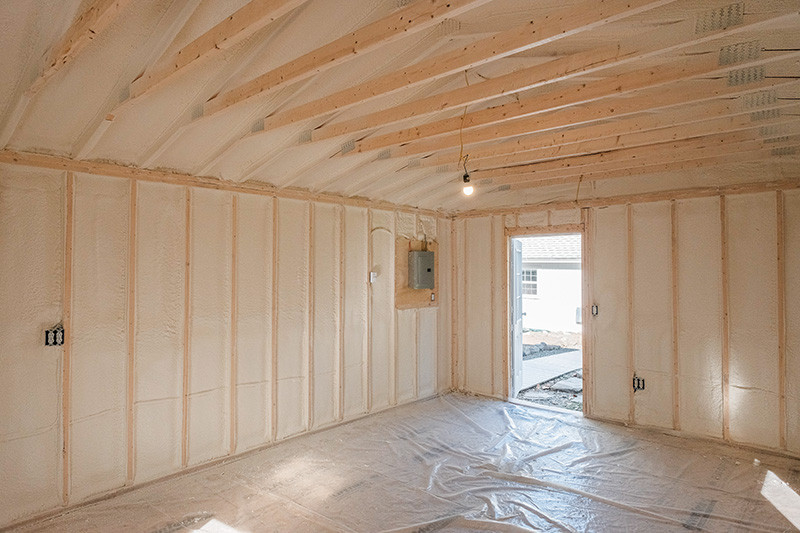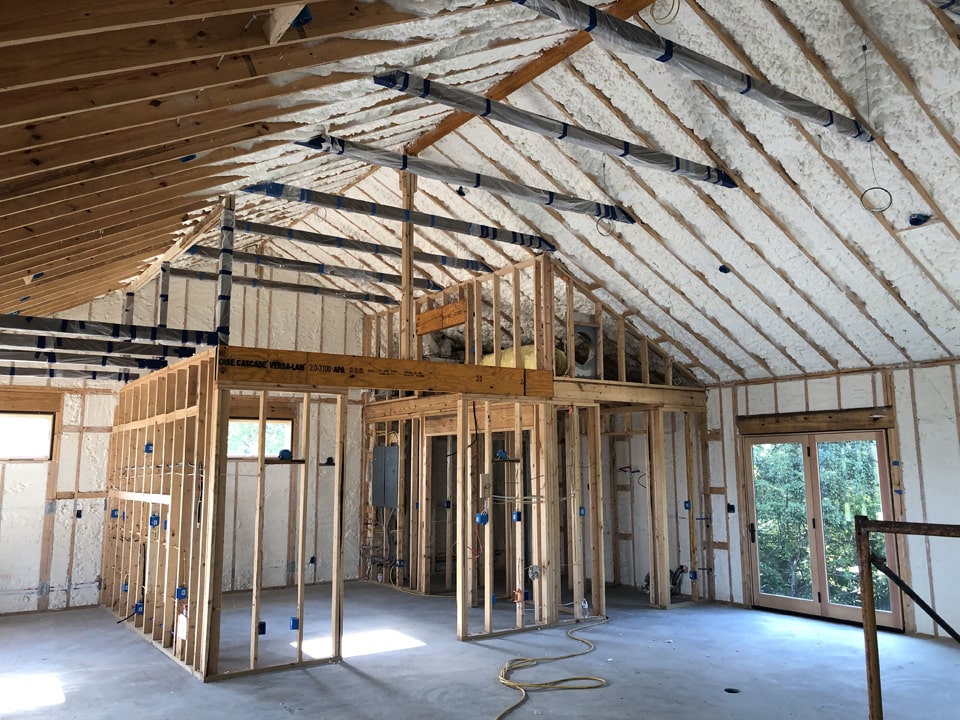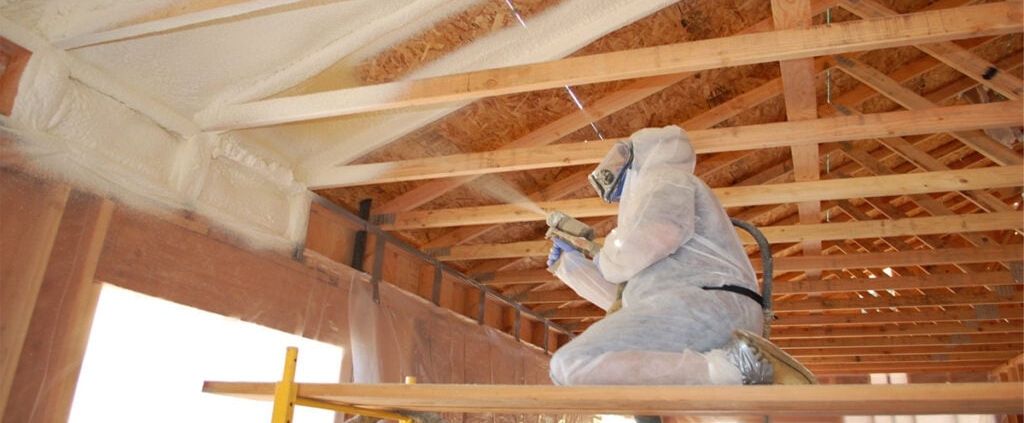How Residential Spray Foam Increases Property Value
Ever feel like your house is working against you? Drafty windows, rising energy bills, rooms that are too hot or too cold, it’s like your home is actively trying to make life uncomfortable. And when it’s time to sell? Buyers notice that kind of stuff. Whether you’re living in your forever home or planning to sell in a few years, spray foam insulation can tip the scales in your favor.
Here’s the thing: residential spray foam increase property value, and not in a vague “maybe this helps someday” way. We’re talking real, tangible benefits that matter to both homeowners and buyers alike. Let’s break it down in plain language, no fluff, just facts that’ll help you decide if spray foam is worth your attention.
Spray Foam Adds Direct Market Appeal
Buyers don’t want fixer-uppers with hidden costs. A well-insulated home shows smarter planning and lower future expenses. Spray foam adds value because it solves common buyer concerns, before they ever walk through the door.
Buyers Prioritize Efficiency
Energy efficiency is no longer a bonus, it’s expected. Homes with spray foam often appear on MLS listings as “sealed” or “energy-upgraded,” which stands out immediately.
Fun fact: Over 80% of buyers look for energy efficiency in their home search, according to a recent National Association of Home Builders report.
Reduces Post-Sale Renovation Costs
A new buyer won’t need to insulate or troubleshoot moisture problems down the line. That peace of mind matters, and it impacts how high they’re willing to go on price.
Real Energy Savings = Long-Term ROI
One of the easiest ways to justify a higher asking price? Lower utility bills. Spray foam creates a tighter seal than other types of insulation, meaning air leakage is drastically reduced.

Higher R-Value Efficiency
Spray foam has a higher R-value per inch than fiberglass or cellulose. That’s not just science, it’s less money floating out the window every month.
| Insulation Type | Average R-Value per Inch | Air Seal Quality | Moisture Resistance |
|---|---|---|---|
| Fiberglass Batts | R-2.9 to R-3.8 | Low | Poor |
| Cellulose | R-3.1 to R-3.8 | Moderate | Moderate |
| Spray Foam | R-6.0 to R-7.0 | High | Excellent |
Fun fact: Closed-cell spray foam adds a rigid structure to walls, which can even improve wind resistance.
Lower Monthly Operating Costs
A home that costs less to heat and cool will show those savings in utility history reports. Savvy buyers ask for this, don’t let a poorly insulated house ruin your negotiation power.
Moisture Control Prevents Structural Damage
Moisture leads to mold, rot, and a slow decline in home quality, none of which impress appraisers or home inspectors. Spray foam creates a moisture-resistant barrier that protects the building envelope.
Acts as a Vapor Barrier
Closed-cell spray foam doesn’t just insulate, it seals out moisture from the inside. That helps stop the silent damage that can sabotage resale value years down the line.
Preserves Foundation and Framing
Wood framing exposed to moisture gets soft, brittle, and warped. Spray foam helps maintain structural integrity, which can improve home inspections and reduce repair risk.

Comfort Levels Translate to Higher Offers
Let’s be honest, if a home feels uncomfortable during a walk-through, it’s dead in the water. Buyers won’t care about the granite counters if the living room feels like a meat locker.
Even Temperatures Across Rooms
Spray foam helps eliminate hot and cold spots, especially in multi-level homes. That means one thermostat setting actually feels the same across all rooms.
Quieter Indoor Environment
Spray foam doesn’t just block air, it blocks sound. This is a subtle benefit, but a quieter home is more relaxing and gives buyers a better first impression.
Reduced HVAC Load Adds Equipment Longevity
Another indirect value boost? The HVAC system doesn’t have to work as hard in a spray foam–insulated home. That means fewer breakdowns and better efficiency over time.
Smaller Equipment, Longer Life
Many homeowners can downsize their HVAC units after installing spray foam. A right-sized system reduces monthly bills and lasts longer.
Fewer Repairs and Tune-Ups
Systems that don’t cycle constantly don’t wear out as quickly. When buyers ask about HVAC service history, this can be a major plus.
Appraisers Recognize Energy Upgrades
Yes, spray foam can positively influence appraisals. It’s not just anecdotal. Appraisers often include insulation upgrades under energy-efficient improvements, especially when proper documentation is available.
Include Energy Reports and Specs
When spray foam is part of a full energy upgrade (like new windows or HVAC), an energy audit can provide verifiable data. This improves confidence in the price.
Support from Green Certifications
Spray foam contributes toward certifications like HERS ratings or Energy Star performance, which appraisers are trained to include in value assessments.
Conclusion
Spray foam insulation isn’t just a home improvement, it’s a value multiplier. It seals, insulates, strengthens, and protects your property from all the stuff that usually eats away at value: high bills, poor comfort, moisture issues, and failing systems. For homeowners looking to stay put, it means comfort and lower bills. For those looking to sell, it means higher market appeal and fewer price objections.
Whether you’re dealing with a drafty attic or planning for long-term resale, spray foam turns a passive upgrade into a smart investment. And in a market where buyers are looking for value beyond granite countertops, energy-efficient insulation is one of the few upgrades that pays off in more ways than one.
Learn more: https://ribsprayfoam.com/?utm_source=backlink
FAQs
Does spray foam make a home too airtight? No. Homes still need ventilation, but spray foam simply reduces uncontrolled air leakage. Most modern HVAC systems include proper air exchange features to balance this.
How long does spray foam insulation last? Spray foam doesn’t settle, compress, or degrade the way other insulation types do. When installed correctly, it can last the life of the home with no need for replacement.
Will spray foam increase appraisal value directly? Appraisal value can increase when energy-efficient upgrades are documented. Including energy reports or a HERS rating with spray foam insulation often results in higher appraised value.
Can spray foam reduce outside noise? Yes. Closed-cell and open-cell spray foam both reduce airborne sound transmission, making interiors quieter and more comfortable, especially in urban areas or homes near traffic.
Does spray foam add structural strength to a home? Closed-cell spray foam adds rigidity to walls and roofs. In some cases, this can improve resistance to wind uplift and lateral force, which adds hidden value in storm-prone areas.
Reviewer: Grace Walker has been in the spray foam business for 9 years and provided suggestions that helped refine this article’s focus on brand development and simple, consistent marketing efforts.


Leave a Reply
Want to join the discussion?Feel free to contribute!